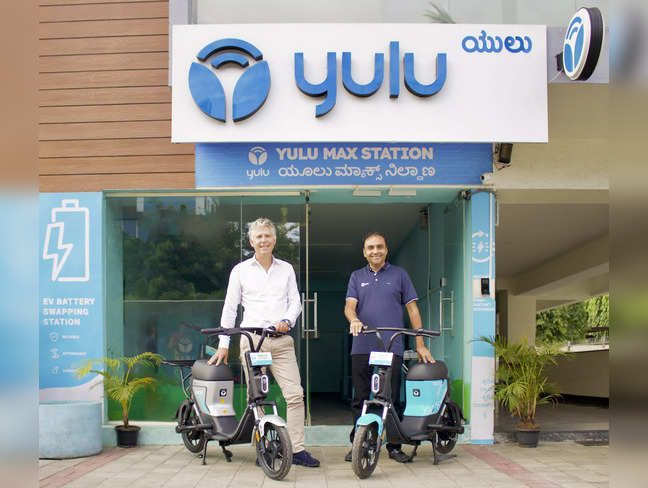 ETtech
ETtechExisting investors, including Bajaj Auto, also participated in the funding round, which saw automotive parts major Magna pump in $77 million.
Yulu’s two-wheelers can be hired for short durations using its mobile application. The blue, single-seat two-wheelers have become a common sight in Delhi, Bengaluru and Mumbai.
Also Read: Can mobility startup Yulu pull off its expensive post-pandemic pivot?
The company is looking to ramp up its rental fleet to over 100,000 two-wheelers from about 10,000 at present. For further capital requirements to reach that scale, the company will be raising debt, Gupta said. Yulu has tied up with Bajaj Auto for the manufacturing of these vehicles.
Discover the stories of your interest

On the battery-swapping side, Magna and Yulu will be setting up a new company that has a placeholder name of Yulu Energy. Under this company, Yulu and Magna plan to leverage the existing battery-swapping and charging network of the shared mobility company and open it to other companies and the public.
The company is targeting a network of over 500 charging stations over the next 12 months. Companies planning to tap into this network will have to adapt to the battery and charging standards of Yulu.
In future, the company plans to adopt an additional charging standard for better usability across other makes of electric vehicles, said Gupta, who is also the chief executive.
Yulu claims that this expansion of fleet and battery-swapping stations will make it cash-flow positive.
“We can clearly see a 100 (times) growth opportunity for Yulu in both the BaaS and MaaS businesses in the next three-four years,” Gupta said in a press statement. BaaS stands for battery-as-a-service and MaaS for mobility-as-a-service.
“We will go deeper and denser in our existing markets and explore new areas while delivering a great customer experience,” he said.
For Magna, this will be a significant investment in the electric mobility segment in India, Matteo Del Sorbo, executive vice president of Magna, told ET from Canada via videoconferencing.
“It’s a large investment that Magna is making both on the mobility side as well as the battery-as-a-service company that we are creating. So, this is our entry into the Indian market, and we feel we have a competitive advantage together with Yulu,” he said.
Yulu has had strategic partnerships with Bajaj Auto on product design, technology platforms, engineering processes and manufacturing. Its next generation of electric two-wheelers will roll out of Bajaj’s Pune facility by 2022-end.
















 Get Unlimited Access to The Economic Times
Get Unlimited Access to The Economic Times
